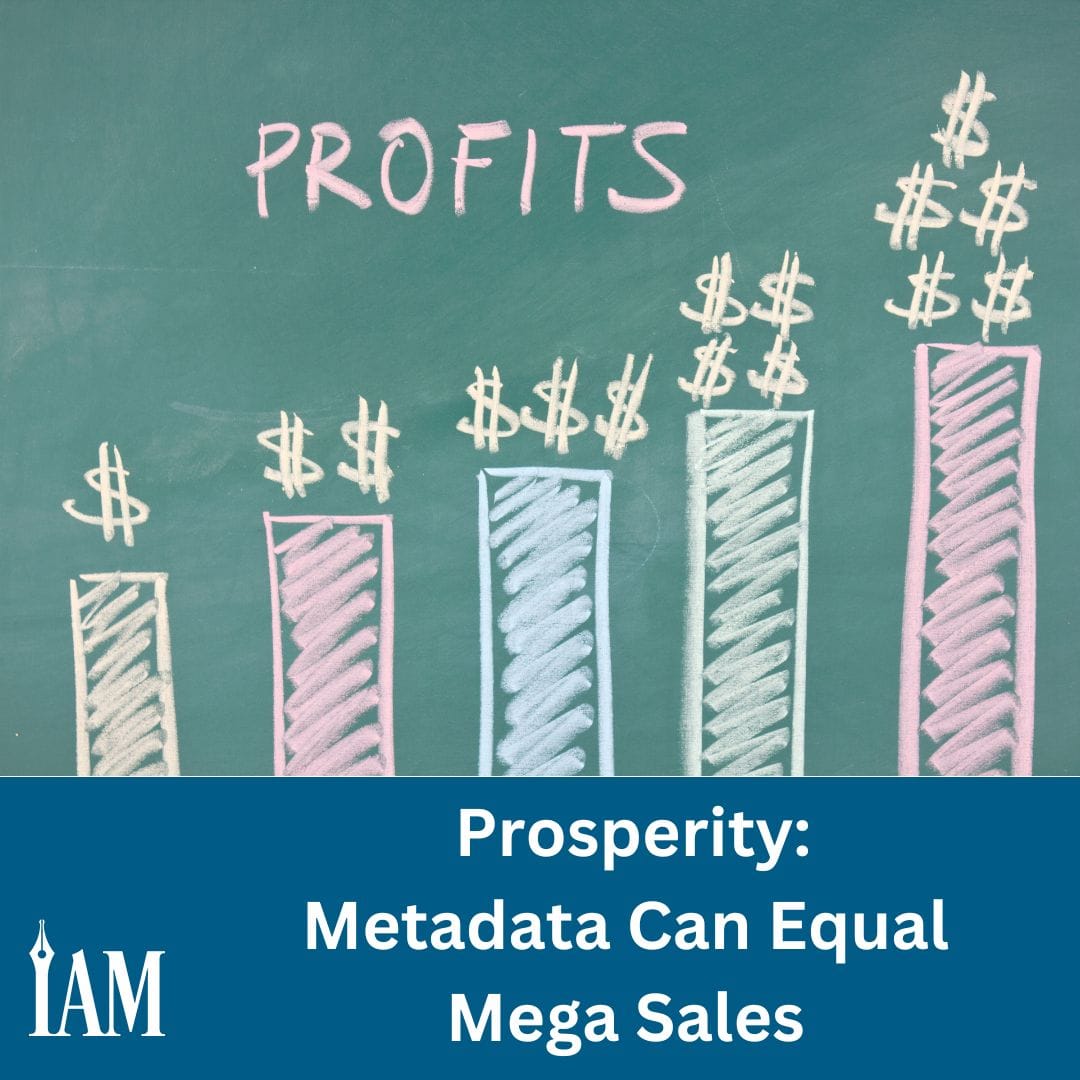Get a handle on your book’s metadata, and you can turn your book into a veritable cash machine. Ignore the finer points of metadata, and your book might fail to find the traction, impact, and income you would really like it to have. That would be a bummer.
For those of you who cringe, as I do, when you hear words like metadata—or just data, period—you’re not alone. Our brains want to focus on things that are fun and do those things that are easy. If data doesn’t come easily to you, you might pretend it doesn’t exist. That would be to your, and your book’s, peril.
There are plenty of articles in this issue about the intricacies and details of metadata. My job in this article is to help you with your metadata money mindset.
Let’s start with this: you can do hard things.
You’ve already done about a zillion really hard things and come through with flying colors.
Did you graduate high school, and then maybe college? Did you get an advanced degree? Run a marathon? Travel abroad? Learn a foreign language? Buy a house or car on your own? Interview for a job? Become a parent? Move—maybe more than twice?
Yes, maybe you’ve done some or all of these hard things, or maybe you’ve done others. At the very least, you’ve written a book, and that’s a feat on its own!
You’re also smart enough to be a writer, and you’re curious enough to read this magazine and this article. You can learn the ins and outs of metadata and how to maximize them for your book over time as long as you dedicate yourself to it.
Of course, that may sound easier said than done. But as with most things I don’t find fun or easy, I’ve developed some hacks for getting from point A to point B while enjoying the process—or at least not hating it.
Step One: Find a metadata mentor. My buddy and coauthor, Brian Meeks, loves data. He’s wicked smart and can explain complex concepts in an easy-to-understand way. Find someone in your life like Brian, and ask them to simplify the parts of the concept you don’t understand.
Step Two: Learn one thing at a time. Just as you didn’t learn how to craft your stories all in the same day, you don’t need to learn everything about metadata before supper. The best place to start is at the beginning, so start there!
Step Three: Make it easy to feel successful. Every time you read an article, apply a new strategy, or have an aha moment, have a cookie. Our brains love a good reward, and proving to yourself you can do something, combined with a cookie, is a recipe for success. You know it’s true—you love to do things that make you feel like you’ve made progress. The cookie is just an added bit of magic.
Step Four: Stay at it until you can do it on autopilot. For each thing I learn, I do my best to teach it to someone else, so it sticks with me. I want to learn it until I know it, and use it until it becomes second nature.
You’ll get the hang of finding the correct title, subtitle, keywords, categories, and more. The more you’ll do it, the better you’ll get at it. Guess what? That means you’ll make more of an impact—and therefore more of an income. See how it all comes together? You’ve got this. I believe in you!
Here’s to you and your book’s success!

